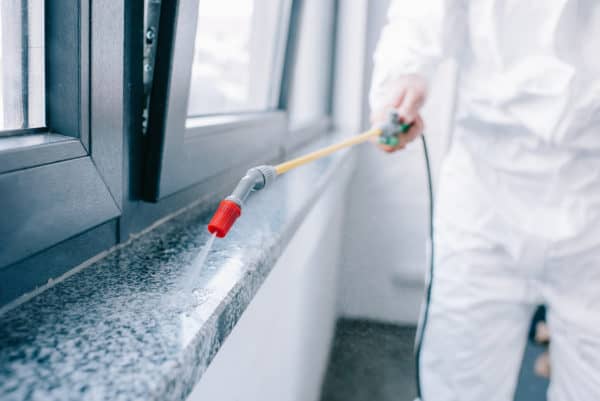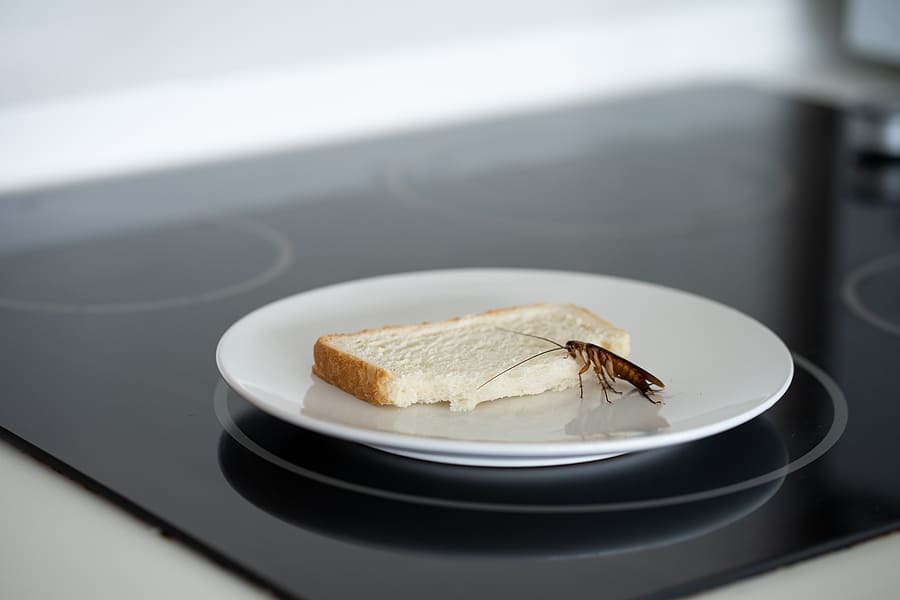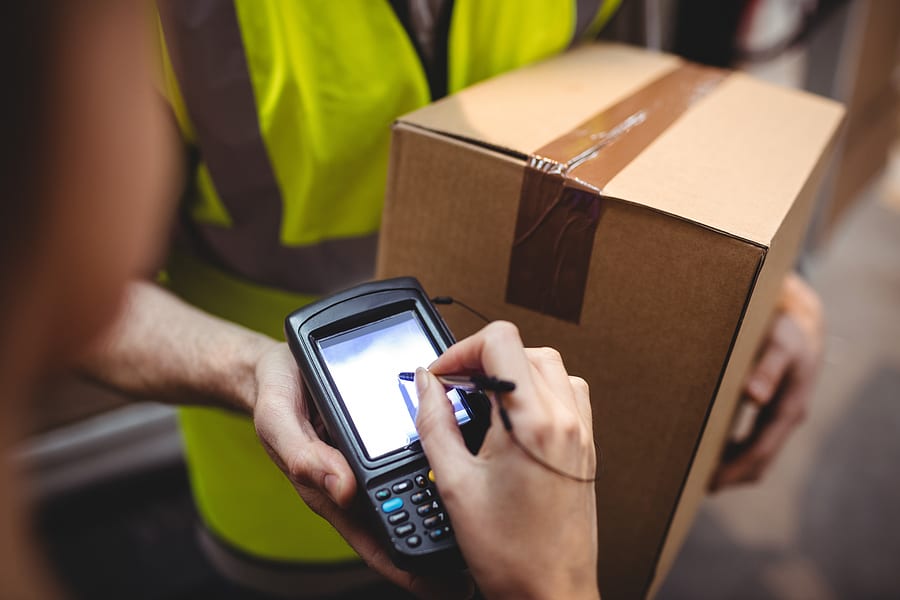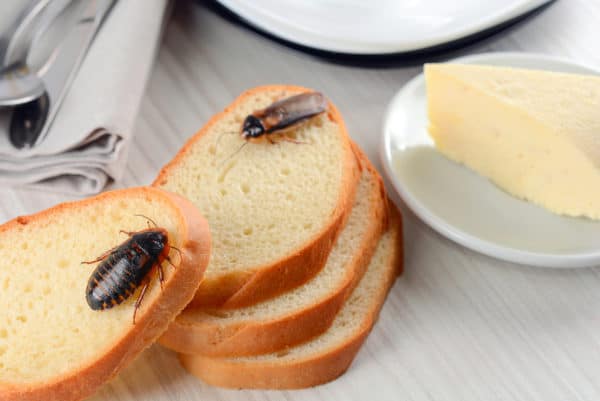READY TO GET STARTED?
REQUEST A FREE ESTIMATE
Fill out the form below or call (888) 466-7849 for a free, no-obligation estimate.

Decluttering is essential for a productive and healthy home, but it’s also one of the most effective and overlooked ways to prevent pests. Messy environments offer pests food, shelter, and hiding spots, making your home an easy target. Explore why a tidy home is essential for pest prevention and how you can keep your space pest-free by following these decluttering tips!
Pest prevention is the foundation of experiencing a pest-free living environment. Decluttering your home helps in the following ways:
Focus on decluttering areas where pests are most likely to invade:
Pests like roaches and rodents are attracted to piles of paper and cardboard boxes. Switching to plastic bins will help limit the possibility of these pests and offer better protection for your stored items.
While decluttering, inspect your home for cracks, gaps, and holes where pests could enter. Use caulk and weatherstripping to seal these gaps.
Old clothes, broken furniture, and expired pantry items can attract pests. Donate reusable items and dispose of the rest properly.
Decluttering is just the start. Stick to a regular cleaning schedule:
Decluttering is more than just tidying up—it’s an effective way to limit the risk of experiencing a pest infestation in your home. If you begin spotting extra pests in your decluttered home, reach out to your local pest control company near you for a free inspection!

Spring marks the beginning of the season for many common household pests. Mice, ants, wasps, roaches, bed bugs, and more increase their activity when the weather warms up. While a pest sneaking into your home here and there is normal, how do you know when it’s time to call in the professionals? Here are 5 signs it may be time to call an exterminator.
A random pest sighting here and there in your home is normal. They can sneak in through open doors and windows or through the tiniest gaps and holes in the exterior of your home. They can also hitch a ride on luggage or boxes that are brought in from outside. There is a difference, however, between an occasional sighting and a daily presence. Seeing 2 to 3 ants in your kitchen once isn’t a big deal; seeing a trail of hundreds of ants going from the wall to the pantry is. Seeing one mouse outside in your yard isn’t a big deal; seeing multiple in your home, trapping several, or seeing the presence of droppings is. If the pest problem is escalating, it may be time for an exterminator.
Once you identify the pest problem, the next step is to try and get rid of them. Many homeowners prefer to try DIY pest control methods first before calling in a pro. If you continue to have a problem with pests despite your best efforts, it may be time to call an exterminator.
Pests can pose serious health risks to your family, your pets, and even your home. Termites can cause structural damage that can compromise the integrity of your house. Rodents are known to chew through electrical wires putting you at risk for a fire. Rodent feces contains harmful pathogens that can make your family sick. Cockroaches are known to trigger allergies and asthma. Some homeowners aren’t comfortable using DIY methods or have concerns about using over-the-counter chemicals around their children or pets. For these reasons, it may be time to call an exterminator.
Some pests are nearly impossible to eradicate on your own or require professionals to get rid of them. Bees are protected and must be relocated appropriately. Some bird species are protected, as well, and bird nest removal must be handled professionally. Roaches, termites, and bed bugs can be extremely difficult to eradicate on your own. If you have an issue with any of these pests, it may be time to call an exterminator.
When the signs of an infestation become too big to ignore, it may be time to call in a professional. Some common signs of pests in your home include:
If you have a problem with any kind of pest, contact a professional pest control company for an inspection to help identify what kind of pest you are dealing with, how they are getting in, and how to get rid of them quickly and safely.
Flowers and Plants That Attract Honeybees

The last thing any homeowner wants to deal with is an unwanted household pest. Roaches, bed bugs, termites, rodents, and more each bring their own set of problems and damage to both homes and health. Our first instinct is to get rid of these pests quickly and we often go for a DIY route. But what should you know before you dive into DIY pest control?
DIY vs professional pest control is a common debate. One of the most important factors that goes into pest control decisions is cost. Although DIY products typically cost much less then commercial products, they can ultimately cost more in the long run. Most DIY pest control methods are reactive – they aren’t applied until a pest problem is already established. Professional pest control provides preventative treatments to help stop infestations before they start. Even though you may save money on the products, you may end up spending significantly more in treatment and repair costs down the road.
Other factors that go into pest control decisions include effectiveness, expertise, safety, and guarantee. DIY products typically work as “spot treatments,” encompassing a small area where the problem is. They don’t usually cover a large area nor last long enough to control a full blown infestation. Professional products are designed for large scale use, getting into places you may not see pests such as inside walls, crawlspaces, and foundations. Proper identification of the pest you are treating for is critical to elimination. While pest control products are labeled with easy-to-follow instructions, professional pest control technicians are equipped with the most up-to-date technology and techniques to help eliminate a pest infestation. The same is true for safety. DIY products can contain chemicals which are hazardous for humans and/or pets. They may also contain chemicals that the average homeowner isn’t familiar with. Professionals are trained on proper use of these chemicals, reducing the risk to you and your family. They also have green pest control options that can be utilized. Finally, DIY products may contain a manufacturer’s warranty or store guarantee on the product. Professional pest control companies will usually provide a service guarantee where they return between visits (usually at no additional charge) for any pest problems that pop up before service is due again.
If you have evaluated all the angles and decided the DIY approach is best for your situation, here are a few of our favorite DIY pest control tips you can use in your home.

With the holiday season arriving, your business is sure to get plenty of packages to fulfill your customers’ needs. Shipments and deliveries will be expected in and out throughout the day, unfortunately putting your business at risk of a pest infestation. We break down how you can get prepared for commercial pest control before the packages start rolling in!
Know the Signs
Understanding the signs that your delivered packages are infested is the first step to prevention. Pests will often leave infestation signs outside and inside the package. Gnawing marks in the corner of cardboard boxes or containers is a well-known indicator of a rodent infestation. Other red flags include seeing egg cases, discarded wings, insect body parts, droppings, larvae, or the actual pest inside the package. If there is a pest inside a delivery, it is best to take the package outside and isolate it.
Prepare Your Staff
Ensuring that your team understands the signs of pests within packages and deliveries is another step in pest prevention. Educate them on the types of pests they could potentially see, how to inspect each delivery, and the procedures to take if they find an actual pest.
Always Tidy Up
For many businesses, shipments and packages will be delivered either at the front of the business or have a dedicated loading dock. With any unloading area, make sure that the space is always clean and uncluttered. Have the location frequently cleaned and prohibit any food or drinks to help avoid supplying the pests with a food source.
Dealing with an unexpected pest infestation is the last thing you want to do during the hustle and bustle of the holiday season. Ensure that your business has a pest plan in place to help prevent any pest problem that can ruin your reputation.

We know pests try to make their way into our homes, but when we see one outside of the comfort of our home we often feel a loss of control or panic. We hold businesses, hospitals, and food establishments to a higher standard due to the nature of their industries.
Because of the work they do for their customers and their communities, it is even more important for these industries to have a good, ongoing relationship with a local pest control company to ensure guests and customers feel comfortable and pest-free.
With the ever-changing food regulations designed to keep patrons safe, it is important to have a tight-knit partnership with a licensed pest control professional. Pest infestations can lead to hefty fines from health departments, increased food costs due to contaminated food, and in worse cases, the closure of the business. Pest prevention procedures and proper sanitation education for staff is essential in keeping your establishment free from pests and your reputation intact.
Hospitals, rehabilitation centers, and long-term care facilities have high standards of sanitation due to the sensitive environment for patients. Pest infestations can pose serious health threats by spreading bacteria through contamination of hospital rooms and equipment. A well-detailed pest prevention plan is crucial in keeping patients and staff healthy and safe.
Reputation drives the hospitality industry and with review sites increasing in visibility and reach, one negative review can cause a bigger impact than 10 positive ones. Nothing can be more damaging to a business than a negative review detailing a pest encounter. A relationship with a local pest control company will not only protect customers from pest infestations but also protect the reputation of your business.
Commercial pest control is a science that requires a strong partnership between the business and their local pest control company. An individualized plan is critical in protecting your important investment. If you do not already have a long-standing relationship with a pest professional, give your local company a call to set up an inspection.